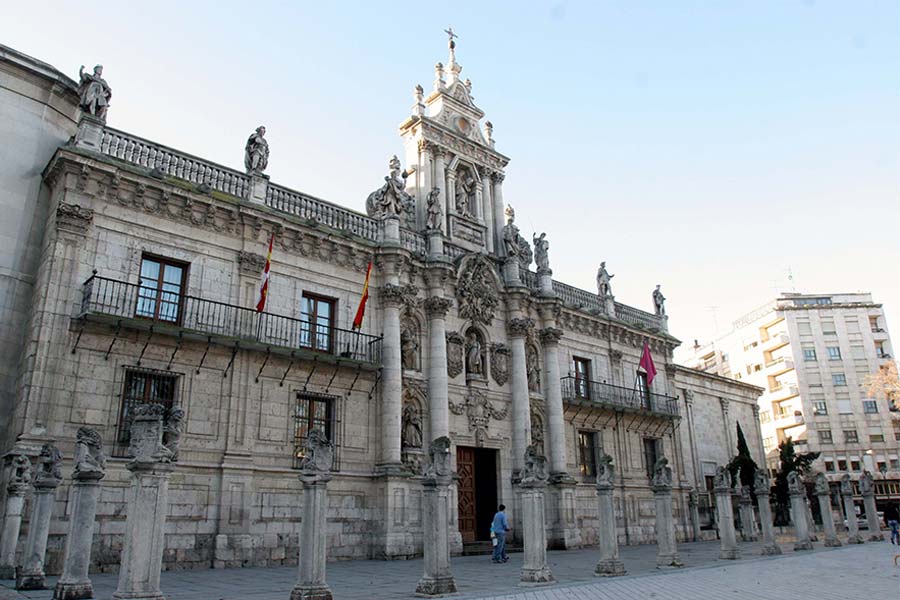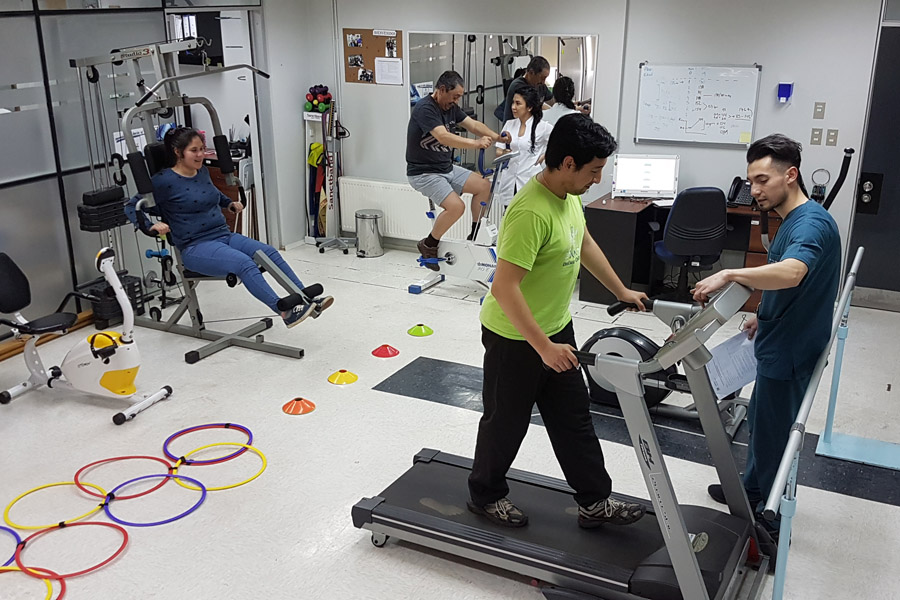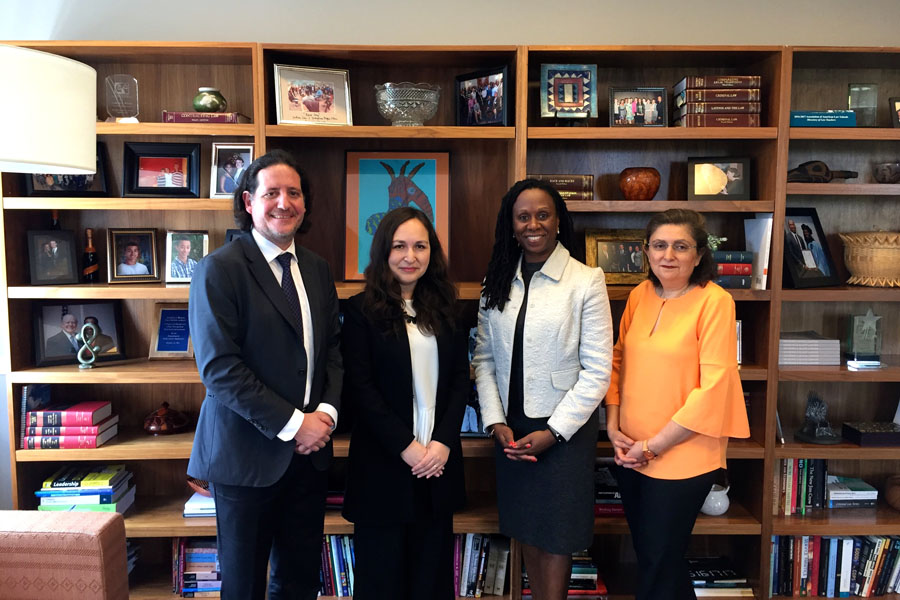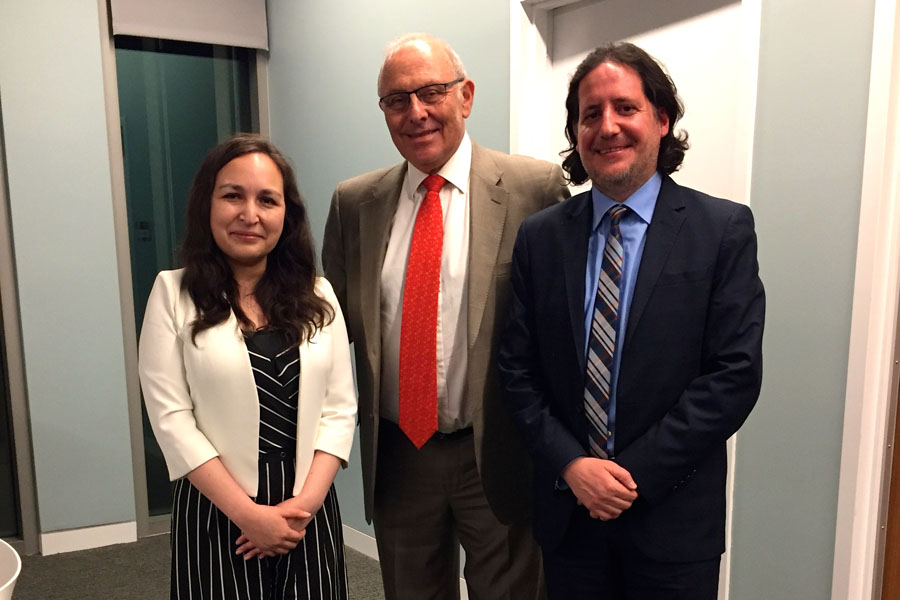|
The new center of the Faculty of Engineering and Science has been presented during an international seminar. |
The recent work in research, training of human capital and community outreach that has been developed at the Mycorrhizae Laboratory of the Department of Chemical Sciences and Natural Resources at the Universidad de La Frontera led to the installation of a new space for science and technology: the Research Center for Micorrhizae and Agro-environmental Sustainability (CIMYSA). CIMYSA collaborators: academics of the Department of Chemical Sciences and Natural Resources of the Faculty of Engineering and Science and BIOREN-UFRO, postdoctoral researchers with external financing (FONDECYT) and participants in the doctoral programs in Natural Resource Sciences and in Agri-food Sciences and Environment. Also researchers of INIA (Institute for Agricultural Research) are included, as well as a collaboration network with foreign researchers.  Written by: Daphne Bormann Written by: Daphne BormannFaculty of Engineering and Science |
|
Javier Vidal (Construction Engineering graduate) Héctor Herrera (Ph.D. in Natural Resource Sciences) and Daniela León (Ph.D. student in Sciences with specialization in Applied Cellular and Molecular Biology) are the three winners of these initiatives. |
Natural fiber for construction, the production of value-added orchids and a cream formula for the treatment of melanomas are the three initiatives the Universidad de La Frontera is going to develop within the framework of the Second Stage of Valorization of Research at Universities projects of FONDEF (Chilean Fund for the Support of Scientific and Technological Development). The investment is over 72 million Chilean pesos worth.  Written by: Lorena Espinoza Written by: Lorena Espinozavice-rectorate of Research and Postgraduate Affairs |
|
The UFRO has participated as a benefiting institution in the Erasmus Programs of the European Union on several occasions. This time, it permitted to strengthen its partnership with University of Valladolid, Spain. |
The Universidad de La Frontera was granted two scholarships within the Erasmus+ KA107-36589 project, that permit that an academic and a student of the UFRO Doctorate in Agri-Food Sciences and Environment study at University of Valladolid, Spain. This creates new opportunities of international linking and academic exchange for the Universidad de La Frontera.
 Written by: Jassna Sepúlveda Written by: Jassna SepúlvedaCommunications Division UFRO |
|
Patients with coronary heart diseases will benefit from this new way of rehabilitation. The contribution to public health will also be significant, since it will offer more benefits at lower costs. |
The cardiac rehabilitation program has been designed as a secondary prevention for survivors of cardiovascular events. Its effectiveness has been proved and it reduces mortality and posterior hospitalizations. However, it is an intervention that has been underused, mainly because of a lack of corresponding programs and the low number of patients who participate in them, especially in places of low or medium income, as it is the case in the Latin American context. Actually, only about 5 % of the Chilean patients participate in this kind of rehabilitation.  Written by: Lorena Espinoza Arévalo Written by: Lorena Espinoza ArévaloVice-rectorate of Research and Postgraduate Affairs |
|
The director of Academic Quality and vice-dean of the Faculty of Law and Business (FCJE-UFRO), Dr. Raúl Allard Soto, and the director of the Law School, Dr. Pamela Mendoza Alonzo, represented the Faculty of Law and Business during their visit at American University Washington College of Law (AU-WCL). |
International interdisciplinary links and the diversity that defines both institutions were the main topics of conversation with the maximum authorities of the North American university. On this occasion, the dean, Camille Nelson, ratified their intentions to participate in the inauguration ceremony of the academic year at FCJE-UFRO at the beginning of 2019 and, at the same time, took decisive steps towards an agreement that consolidates relations between both institutions and the implementation of concrete activities and projects.
 Written by: Karen Campos Written by: Karen CamposFaculty of Law and Business |










